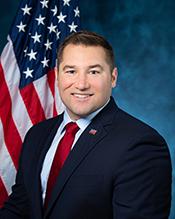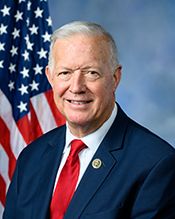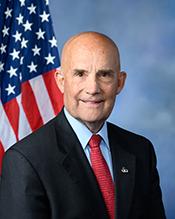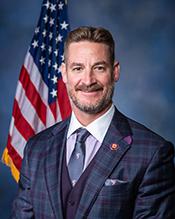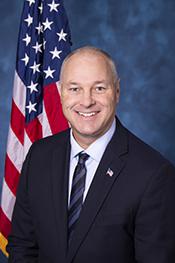0
0
0
Defund EcoHealth Alliance Act
12/15/2023, 3:53 PM
Summary of Bill HR 494
Bill 118 HR 494, also known as the Defund EcoHealth Alliance Act, is a piece of legislation introduced in the US Congress. The bill aims to defund the EcoHealth Alliance, a non-profit organization that conducts research on the prevention of pandemics and emerging infectious diseases.
The bill states that the EcoHealth Alliance has received funding from the US government, including grants from the National Institutes of Health (NIH), to conduct research on viruses such as coronaviruses. However, the bill argues that the EcoHealth Alliance has engaged in activities that are not in the best interest of the United States, including collaborating with the Wuhan Institute of Virology in China.
The bill seeks to prohibit any federal funds from being used to support the EcoHealth Alliance or any of its affiliates. It also calls for an investigation into the organization's activities and the potential risks they pose to national security. Supporters of the bill argue that the EcoHealth Alliance's research could have contributed to the outbreak of the COVID-19 pandemic and that funding should be redirected to other organizations that prioritize US interests. Critics of the bill, however, argue that cutting funding to the EcoHealth Alliance could hinder important research on preventing future pandemics. Overall, Bill 118 HR 494 is a controversial piece of legislation that raises questions about the balance between scientific research and national security concerns. It remains to be seen how the bill will progress through Congress and what impact it may have on the future of pandemic prevention efforts.
The bill states that the EcoHealth Alliance has received funding from the US government, including grants from the National Institutes of Health (NIH), to conduct research on viruses such as coronaviruses. However, the bill argues that the EcoHealth Alliance has engaged in activities that are not in the best interest of the United States, including collaborating with the Wuhan Institute of Virology in China.
The bill seeks to prohibit any federal funds from being used to support the EcoHealth Alliance or any of its affiliates. It also calls for an investigation into the organization's activities and the potential risks they pose to national security. Supporters of the bill argue that the EcoHealth Alliance's research could have contributed to the outbreak of the COVID-19 pandemic and that funding should be redirected to other organizations that prioritize US interests. Critics of the bill, however, argue that cutting funding to the EcoHealth Alliance could hinder important research on preventing future pandemics. Overall, Bill 118 HR 494 is a controversial piece of legislation that raises questions about the balance between scientific research and national security concerns. It remains to be seen how the bill will progress through Congress and what impact it may have on the future of pandemic prevention efforts.
Read the Full Bill
Current Status of Bill HR 494
Bill HR 494 is currently in the status of Bill Introduced since January 25, 2023. Bill HR 494 was introduced during Congress 118 and was introduced to the House on January 25, 2023. Bill HR 494's most recent activity was Referred to the House Committee on Oversight and Accountability. as of January 25, 2023
Bipartisan Support of Bill HR 494
Total Number of Sponsors
1Democrat Sponsors
0Republican Sponsors
1Unaffiliated Sponsors
0Total Number of Cosponsors
68Democrat Cosponsors
0Republican Cosponsors
68Unaffiliated Cosponsors
0Policy Area and Potential Impact of Bill HR 494
Primary Policy Focus
HealthPotential Impact Areas
- Animal and plant health
- Asia
- China
- Congressional oversight
- Environmental health
- Government studies and investigations
- Health programs administration and funding
- Infectious and parasitic diseases
- Medical research
- Political parties and affiliation
- Research administration and funding
- World health
Comments
Sponsors and Cosponsors of HR 494
Latest Bills
Providing amounts for the expenses of the Committee on Ethics in the One Hundred Nineteenth Congress.
Bill HRES 131December 12, 2025
Providing for congressional disapproval under chapter 8 of title 5, United States Code, of the rule submitted by the Bureau of Land Management relating to "Central Yukon Record of Decision and Approved Resource Management Plan".
Bill HJRES 106December 12, 2025
Expressing the sense of the House of Representatives in condemning the Government of the People's Republic of China for its harassment and efforts to intimidate American citizens and other individuals on United States soil with the goal of suppressing speech and narratives the People's Republic of China finds unwelcome.
Bill HRES 130December 12, 2025
Providing for congressional disapproval under chapter 8 of title 5, United States Code, of the rule submitted by the Bureau of Land Management relating to "North Dakota Field Office Record of Decision and Approved Resource Management Plan".
Bill HJRES 105December 12, 2025
Providing for congressional disapproval under chapter 8 of title 5, United States Code, of the rule submitted by the Bureau of Land Management relating to "Miles City Field Office Record of Decision and Approved Resource Management Plan Amendment".
Bill HJRES 104December 12, 2025
Providing amounts for the expenses of the Select Committee on the Strategic Competition Between the United States and the Chinese Communist Party in the One Hundred Nineteenth Congress.
Bill HRES 104December 12, 2025
Critical Access for Veterans Care Act
Bill S 1868December 12, 2025
OATH Act of 2025
Bill S 1665December 12, 2025
A bill to extend the authority for modifications to the Second Division Memorial in the District of Columbia.
Bill S 1353December 12, 2025
Saving Our Veterans Lives Act of 2025
Bill S 926December 12, 2025
Defund EcoHealth Alliance Act
Bill S 84December 15, 2023
